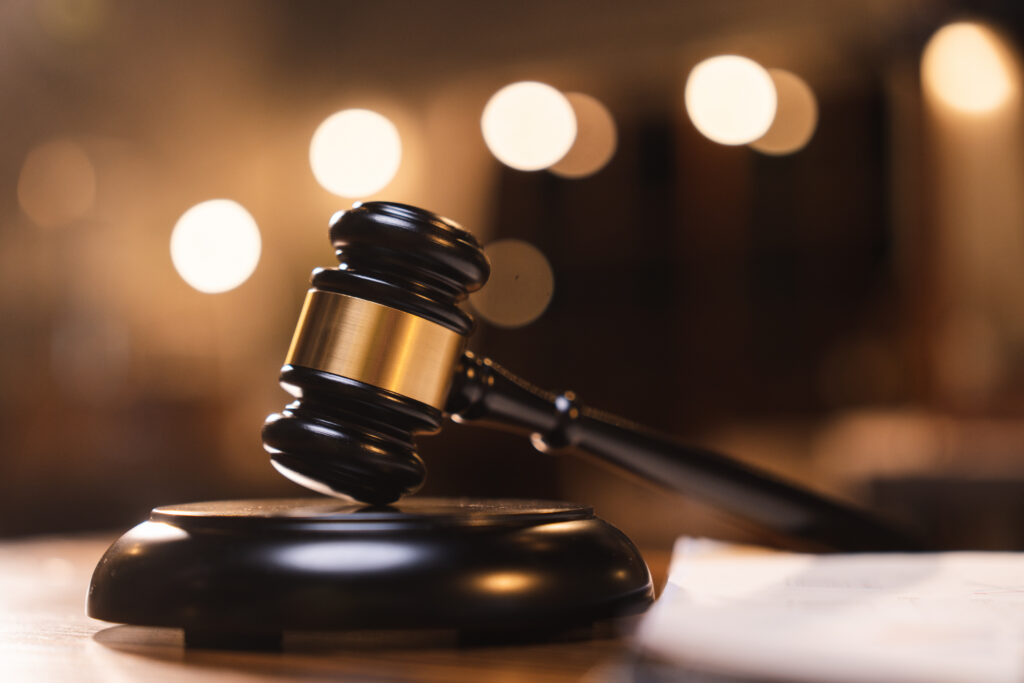
When to Speak Up and Speak Out
Directly contradicting another person can carry the potential to feel antagonistic or rude. But in the realm of compliance, it’s also often necessary. Rules are

Allegations were made of kickbacks in the form of co-pay waivers.
Late last month, US WorldMeds, a pharmaceutical manufacturer, agreed to pay the U.S. Department of Justice (DOJ) $17.5 million to resolve two whistleblowers’ claims that it violated the False Claims Act (FCA) by paying kickbacks to patients and doctors to boost sales of two of their drugs, Apokyn, a drug used to treat Parkinson’s disease, and Myobloc, a drug used to assist in certain high-risk pregnancies. This settlement illustrates the sheer variety of forms alleged kickbacks paid to physicians can take and how lucrative they can be.
Broadly speaking, the Anti-Kickback Statute prohibits healthcare providers, including pharmaceutical companies, from paying or receiving kickbacks, remuneration, or anything of value to induce patients to purchase or use a company’s drugs. The law seeks to prevent physicians from prescribing medically unnecessary medications. The Anti-Kickback Statute is also intended to ensure that a physician’s medical judgment is not compromised by financial incentives and is solely based on the best interests of the patient.
The DOJ settlement with US WorldMeds resolves allegations surrounding two basic schemes. The first scheme allegedly sought to induce patients to purchase Apokyn by offering them waivers of co-pays, a fee that Medicare beneficiaries are required to pay for medications. These fees are generally paid in the form of a co-payment of a deductible, and they are legally mandated. Drug makers reimbursing patients for these costs, however, can run afoul of the Anti-Kickback Statute.
After US WorldMeds raised prices of Apokyn in 2012, many patients’ co-pays exceeded $5,000 a year. At the same time, US WorldMeds allegedly funded a third-party foundation that paid the co-pays of many patients with the goal of increasing the sales of Apokyn at the new, higher rate. US WorldMeds was the foundation’s only donor.
For the second scheme, US WorldMeds allegedly provided certain physicians with kickbacks that were meant to induce them to prescribe more Apokyn and Myobloc. According to the complaint, the doctors were paid excessive consulting and speaker fees and also were bought lavish meals, private plane rides to Hawaii, and all-expenses-paid trips with their spouses to the Kentucky Derby, where one doctor was seated in the US WorldMeds company box. The schemes were alleged to be both large, long-running, and nationwide.
In addition to paying $17.5 million, US WorldMeds entered into a five-year corporate integrity agreement with the government. Under the terms of the agreement, US WorldMeds will need to hire an outside independent review organization to monitor its promotional activities and its interactions with third-party charities.
These alleged fraud schemes were revealed in two different lawsuits brought by two whistleblowers, Brian Bennett, a former national sales director, and Dr. Robert Chinnapongse, a former senior medical director at US WorldMeds. The whistleblowers will receive an award of more than $3 million under provisions of the FCA’s qui tam, which allow private persons to file suit against entities that defraud the government and if their suits are successful, whistleblowers are entitled to receive between 15 and 25 percent of the government’s recovery.
The US WorldMeds whistleblowers alleged further wrongdoing, such as off label marketing of the drugs for cosmetic dental use. Those allegations, however, have not been resolved.
As these cases demonstrate, the vigilant and discerning eyes of pharmaceutical employees are essential in combating the increasing number of alleged frauds involving kickbacks, given that business relationships such as the one between US WorldMeds and physicians are often opaque and require the perspective of company insiders.


Directly contradicting another person can carry the potential to feel antagonistic or rude. But in the realm of compliance, it’s also often necessary. Rules are

EDITOR’S NOTE: Gloryanne Bryant has more than 40 years of experience in her field and is an independent HIM Coding and CDI Consultant who works
Please log in to your account to comment on this article.

Expert presenters Kathy Pride, RHIT, CPC, CCS-P, CPMA, and Brandi Russell, RHIA, CCS, COC, CPMA, break down complex fracture care coding rules, walk through correct modifier application (-25, -57, 54, 55), and clarify sequencing for initial and subsequent encounters. Attendees will gain the practical knowledge needed to submit clean claims, ensure compliance, and stay one step ahead of payer audits in 2026.

Accurately determining the principal diagnosis is critical for compliant billing, appropriate reimbursement, and valid quality reporting — yet it remains one of the most subjective and error-prone areas in inpatient coding. In this expert-led session, Cheryl Ericson, RN, MS, CCDS, CDIP, demystifies the complexities of principal diagnosis assignment, bridging the gap between coding rules and clinical reality. Learn how to strengthen your organization’s coding accuracy, reduce denials, and ensure your documentation supports true medical necessity.

Denials continue to delay reimbursement, increase administrative burden, and threaten financial stability across healthcare organizations. This essential webcast tackles the root causes—rising payer scrutiny, fragmented workflows, inconsistent documentation, and underused analytics—and offers proven, data-driven strategies to prevent and overturn denials. Attendees will gain practical tools to strengthen documentation and coding accuracy, engage clinicians effectively, and leverage predictive analytics and AI to identify risks before they impact revenue. Through real-world case examples and actionable guidance, this session empowers coding, CDI, and revenue cycle professionals to shift from reactive appeals to proactive denial prevention and revenue protection.

Sepsis remains one of the most frequently denied and contested diagnoses, creating costly revenue loss and compliance risks. In this webcast, Angela Comfort, DBA, MBA, RHIA, CDIP, CCS, CCS-P, provides practical, real-world strategies to align documentation with coding guidelines, reconcile Sepsis-2 and Sepsis-3 definitions, and apply compliant queries. You’ll learn how to identify and address documentation gaps, strengthen provider engagement, and defend diagnoses against payer scrutiny—equipping you to protect reimbursement, improve SOI/ROM capture, and reduce audit vulnerability in this high-risk area.

Stay ahead of the 2026-2027 audit surge with “Top 10 Audit Targets for 2026-2027 for Hospitals & Physicians: Protect Your Revenue,” a high-impact webcast led by Michael Calahan, PA, MBA. This concise session gives hospitals and physicians clear insight into the most likely federal audit targets, such as E/M services, split/shared and critical care, observation and admissions, device credits, and Two-Midnight Rule changes, and shows how to tighten documentation, coding, and internal processes to reduce denials, recoupments, and penalties. Attendees walk away with practical best practices to protect revenue, strengthen compliance, and better prepare their teams for inevitable audits.

As AI reshapes healthcare compliance, the risk of biased outputs and opaque decision-making grows. This webcast, led by Frank Cohen, delivers a practical Four-Pillar Governance Framework—Transparency, Accountability, Fairness, and Explainability—to help you govern AI-driven claim auditing with confidence. Learn how to identify and mitigate bias, implement robust human oversight, and document defensible AI review processes that regulators and auditors will accept. Discover concrete remedies, from rotation protocols to uncertainty scoring, and actionable steps to evaluate vendors before contracts are signed. In a regulatory landscape that moves faster than ever, gain the tools to stay compliant, defend your processes, and reduce liability while maintaining operational effectiveness.

Get clear, practical answers to Medicare’s most confusing regulations. Join Dr. Ronald Hirsch as he breaks down real-world compliance challenges and shares guidance your team can apply right away.

Federal auditors are zeroing in on Inpatient Rehabilitation Facility (IRF) and hospital rehab unit services, with OIG and CERT audits leading to millions in penalties—often due to documentation and administrative errors, not quality of care. Join compliance expert Michael Calahan, PA, MBA, to learn the five clinical “pillars” of IRF-PPS admissions, key documentation requirements, and real-life case lessons to help protect your revenue.
Happy National Doctor’s Day! Learn how to get a complimentary webcast on ‘Decoding Social Admissions’ as a token of our heartfelt appreciation! Click here to learn more →
CYBER WEEK IS HERE! Don’t miss your chance to get 20% off now until Dec. 1 with code CYBER25
CYBER WEEK IS HERE! Don’t miss your chance to get 20% off now until Dec. 2 with code CYBER24